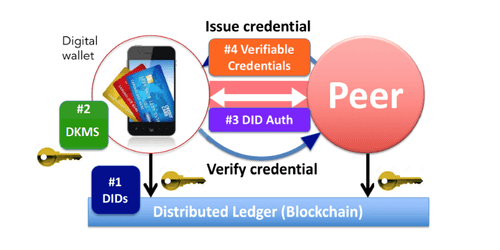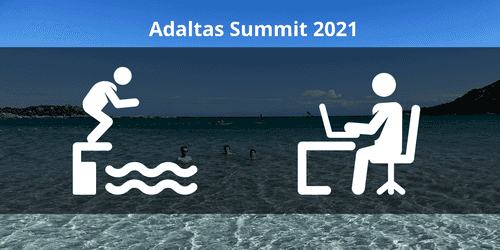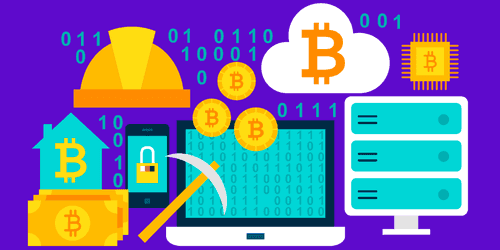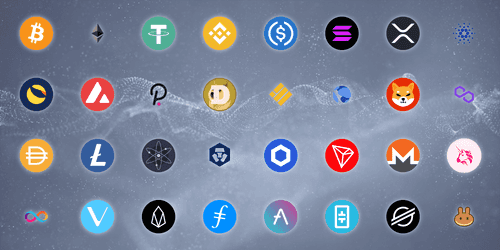Blockchain
In 1992 a group of cryptographers formed the Cypherpunk mailing list to discuss various topics with digital privacy at its core. The group included the creators of SSL, Tor, BitTorrent, and Wikileaks. Amongst them, Dr. Adam Black, Wei Dai, and Nick Szabo proposed different Byzantine Fault Tolerant consensus algorithms, which allow a system to operate even if some of its nodes fail or act maliciously. These concepts lead to Satoshi Nakamoto's release of the Bitcoin white paper in 2008, introducing the first public blockchain.
A blockchain is a distributed database stored through contiguous blocks linked cryptographically. Each block has transactional data, a timestamp, and a hash pointer to the previous block. Different nodes register all these blocks, and a consensus mechanism verifies the integrity of the next block produced. In Bitcoin's case, the consensus mechanism is Proof of Work(PoW), which requires a not-insignificant but feasible amount of energy effort to validate blocks. Other consensus mechanisms include Proof of Stake(PoS) and Proof of Authority(PoA), amongst others.
In 2015, blockchain 2.0 emerged with the creation of Ethereum. These differ from their predecessors as they can execute code automatically in a decentralized manner through a concept called Smart Contracts, instead of only allowing for token transactions.
Three types of blockchains exist:
- Public: allow anyone to join as a node, and are often considered decentralized. e.g Bitcoin.
- Permissioned: controlled by a single or group of organizations that decide who can run a node. e.g. Energy Web, through a consortium of international energy companies.
- Hybrid: managed by a single organization, but with a public layer performing certain transaction validations. e.g IBM food trust.
Public blockchains layers:
- Layer 0: Protocols seeking interoperability between blockchains as well as with non-blockchain databases. E.g. Avalanche et Polkadot.
- Layer 1: Traditional blockchains, usually with a PoW or PoS consensus algorithm.
- Layer 2: developed on top of other blockchains in order to scale them through state channels, sidechains, and other solutions.
- Learn more
- Wikipedia
Related articles

Self-sovereign identities with verifiable claims
Categories: Data Governance | Tags: Authentication, Blockchain, Cloud, IAM, Ledger
Towards a trusted, personal, persistent, and portable digital identity for all. Digital identity issues Self-sovereign identities are an attempt to solve a couple of issues. The first is the…
By Nabil MELLAL
Jan 23, 2019

Adaltas Summit 2021, 2nd edition in corsica
Categories: Adaltas Summit 2021, Learning | Tags: Ansible, Hadoop, Spark, Azure, Blockchain, Deep Learning, Docker, Terraform, Kubernetes, Node.js
For its second edition, the whole Adaltas crew is gathering in Corsica for a whole week with 2 days dedicated to technology the 23rd and the 24th of september 2021. After a year and a half of sanitary…
By David WORMS
Sep 21, 2021

Blockchain 101: Blockchains and Consensus Mechanisms
Categories: Adaltas Summit 2021, Infrastructure, Learning | Tags: Cryptography, Infrastructure, Blockchain, Consensus
Cryptocurrencies are booming in 2021, with a market cap moving from 750 to more than 3,000 billion dollars. Let’s face it, this is mainly due to speculation. A lot of people involved do not have a…
Jan 18, 2022

Blockchain 102: Cryptocurrencies, Wallets and DApps
Categories: Adaltas Summit 2021, Infrastructure | Tags: Cryptography, Infrastructure, Blockchain, Consensus
A lot of people own cryptocurrencies today. But holding some tokens on an exchange does not mean interacting with the blockchain. The assets you trade are only numbers stored inside the exchange’s…
Apr 12, 2022